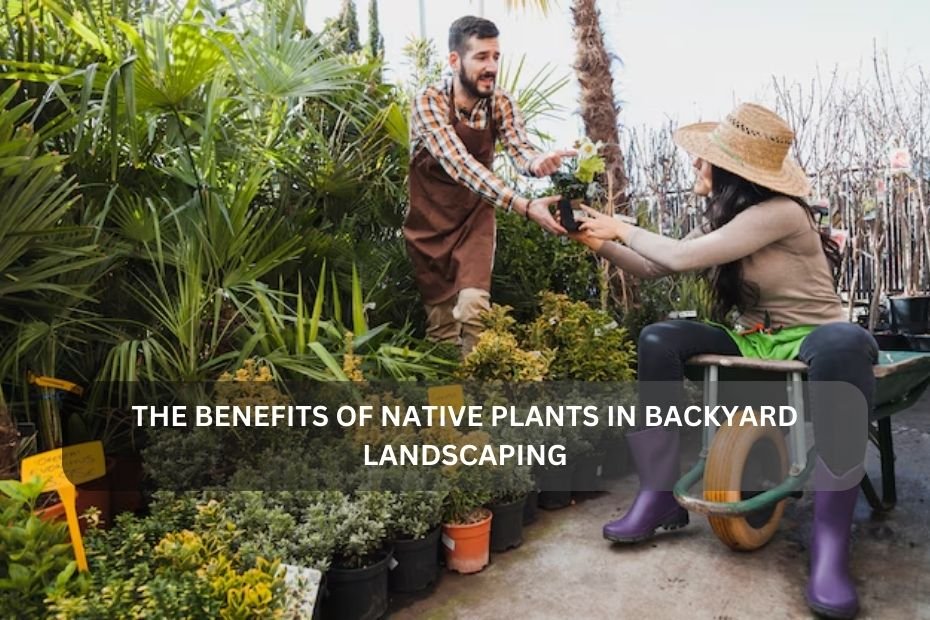Landscaping is an important aspect of creating a beautiful and functional outdoor space. When it comes to choosing plants for your backyard, native plants are becoming increasingly popular. Native plants are those that naturally occur in a specific region without human intervention. They have evolved over time to adapt to the local climate, soil, and other environmental factors. In this article, we will explore the numerous benefits of using native plants in your backyard landscaping.
1. Biodiversity and Wildlife Habitat
One of the most significant benefits of native plants is their ability to support local wildlife. Native plants provide food and habitat for various species, including birds, butterflies, and beneficial insects. For example, many native flowering plants produce nectar that attracts pollinators like bees and butterflies. This helps increase biodiversity in your area, which is essential for maintaining healthy ecosystems. By planting native species, you create a habitat that supports the local food chain and encourages wildlife to thrive in your backyard.
2. Low Maintenance and Cost-Effective
Native plants are adapted to the local climate, which means they require less maintenance than non-native species. Once established, native plants are more resilient to local weather conditions, including droughts and heavy rainfall. They typically need less watering, fertilization, and pruning, saving you time and money in the long run. This low-maintenance quality makes them an excellent choice for busy homeowners or those new to gardening.
3. Soil Health Improvement
Native plants contribute to healthier soil. Their deep root systems help improve soil structure by preventing erosion and promoting nutrient cycling. When native plants die back, they add organic matter to the soil, enriching it with nutrients. Additionally, many native plants have symbiotic relationships with soil microorganisms, which enhances soil fertility and helps retain moisture. Healthy soil is essential for the overall health of your garden and can support a diverse array of plants and wildlife.
4. Water Conservation
Water conservation is a growing concern for many homeowners, especially in regions experiencing drought. Native plants are well adapted to local rainfall patterns and typically require less water than non-native species. By incorporating native plants into your landscaping, you can create a beautiful garden that is also water-efficient. This not only helps conserve water resources but also reduces your water bills.
5. Pest Resistance
Many native plants are naturally resistant to pests and diseases that commonly affect non-native species. Because they have evolved alongside local insects and diseases, native plants have developed defenses that help them thrive without the need for chemical pesticides. This makes them a safer and healthier option for your backyard and reduces the potential harm to beneficial insects and other wildlife.
6. Aesthetic Appeal
Native plants offer a unique and natural beauty to your landscaping. They come in a variety of colors, shapes, and sizes, allowing you to create visually stunning gardens that reflect the local environment. Whether you prefer a wildflower meadow, a formal garden, or a woodland landscape, there are native plants to suit every style. Incorporating these plants into your backyard can enhance its overall aesthetic while providing a sense of place and connection to the local ecosystem.
7. Cultural and Historical Significance
Many native plants hold cultural and historical significance for local communities. They may be associated with traditional practices, culinary uses, or medicinal properties. By planting native species, you can honor the history and heritage of your region while promoting awareness of local ecosystems. This connection to the past can enrich your gardening experience and foster a sense of community with your neighbors.
8. Climate Adaptation
As climate change continues to affect our environment, choosing native plants for landscaping becomes increasingly important. Native plants are better equipped to withstand changing weather patterns and extreme weather events, such as heavy rains, droughts, and temperature fluctuations. By incorporating these resilient plants into your garden, you can help create a more sustainable landscape that can adapt to future environmental challenges.
9. Erosion Control
Native plants play a crucial role in preventing soil erosion. Their extensive root systems anchor the soil, reducing the risk of erosion caused by wind and water. This is especially important for sloped or hilly landscapes, where erosion can lead to significant soil loss and negatively impact water quality in nearby streams and rivers. By using native plants in your landscaping, you can help protect the soil and promote healthy water systems.
10. Community and Educational Opportunities
Landscaping with native plants can also create opportunities for community involvement and education. Community gardens featuring native plants can serve as valuable learning spaces for children and adults alike. They offer a chance to learn about local ecology, gardening techniques, and the importance of conservation. This educational aspect can foster a sense of stewardship and responsibility for the environment, encouraging others to embrace native landscaping in their own yards.
Conclusion
Incorporating native plants into your backyard landscaping offers numerous benefits, from supporting local wildlife to conserving water and improving soil health. These plants are low maintenance, aesthetically pleasing, and resilient to environmental changes, making them an ideal choice for gardeners of all experience levels. By choosing native plants, you not only enhance the beauty of your outdoor space but also contribute to the health of your local ecosystem.
So, whether you are starting a new garden or updating your existing landscape, consider the many advantages of native plants. They are a powerful way to create a sustainable, vibrant, and ecologically friendly backyard that benefits both you and the environment. Embrace the beauty of native plants and enjoy the positive impact they can have on your home and the local community.

